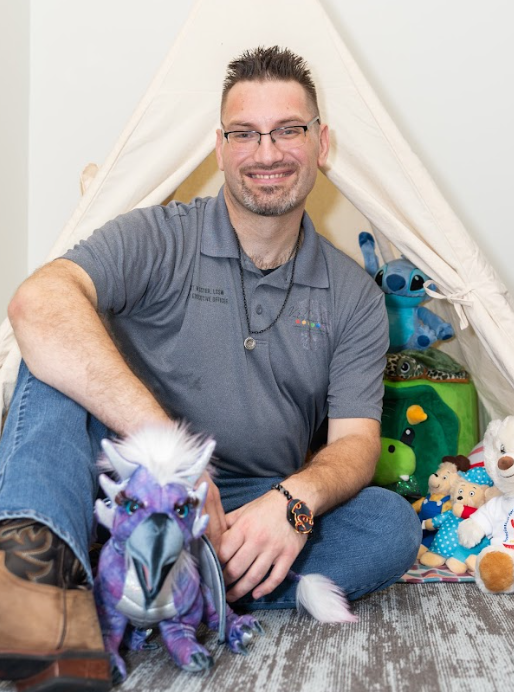Transformative Practice in Play Therapy Intersectionality with SOGIE Children, Adolescents, & Their Families
This three-hour didactic and experiential training is designed to empower play therapists and mental health practitioners in their work with individuals and families within the Sexual Orientation, Gender Identity, and Expression (SOGIE) Community. Through a comprehensive exploration of SOGIE and its intersectionalities, participants will gain insights through an eco-systemic and cultural humanity approach to applying play therapy interventions and aligning mental health practice with the diverse needs of this community.
Using an integrative approach, the training focuses on the role of identity and developmental play in addressing the unique challenges faced by SOGIE children and adolescents. Culturally sensitive language, gender-affirming practices, and play therapy interventions are focused on by emphasizing the therapeutic potential of play in navigating SOGIE-related issues and enhancing multicultural competencies. The workshop delves into the historical, political, and policy perspectives shaping SOGIE communities, examining identity formation, health, mental health, familial dynamics, and childhood and adolescent issues.
Participants will acquire a toolbox of relevant play therapy interventions, ensuring their ability to create inclusive, affirming, and culturally sensitive therapeutic environments for individuals navigating the complexities of SOGIE through play. This training offers theoretical perspectives on the intersectionality of SOGIE issues, equipping play therapy practitioners with the knowledge and skills to promote positive mental health outcomes and enhance multicultural competency.
Learning Objectives: After successful completion of the workshop, participants will be able to:
- Showcase an understanding of the influence of personal bias and intersectionality on play therapy and clinical practice while proficiently naming three standard vocabularies and culturally sensitive terms related to SOGIE for application in clinical practice and play therapy with clients and their families.
- Analyze and describe two social, emotional, and psychological impacts of Sexual Orientation, Gender Identity, and Expression on children's and adolescents' development and daily lives utilizing a play-focused lens.
- Demonstrate five affirmative play dynamics tailored to SOGIE clients and their families, incorporating therapeutic powers of play and relevant clinical considerations into treatment approaches.
3 APT Live Webinar CE | Intermediate| Play Therapy Skills and Methods, Play Therapy Special Topics
This workshop meets APT's definition of "Live Webinar."
 About our presenter: Kurt W. Oster, LBS (PA), LICSW (AL), LCSW (FL & TX), ACSW, BCD, RPT™, with 16 years in mental health, leads VonOstir Innovation Services, PLLC. As an LCSW, he specializes in working with children, adolescents, LGBTQIA+, and families. Mr. Oster is also an author of LGBTQ+ fantasy fiction for young adults.
About our presenter: Kurt W. Oster, LBS (PA), LICSW (AL), LCSW (FL & TX), ACSW, BCD, RPT™, with 16 years in mental health, leads VonOstir Innovation Services, PLLC. As an LCSW, he specializes in working with children, adolescents, LGBTQIA+, and families. Mr. Oster is also an author of LGBTQ+ fantasy fiction for young adults.
NEAPT Members $50; Guests $60 | Limited to 50 participants
VIRTUAL: This will be a virtual meeting. Participants will be awarded LIVE WEBINAR CE upon successful completion of a post test. Participants must be visible throughout the presentation. This workshop meets APT's definition of "Live Webinar."
NEAPT is approved by the Association for Play Therapy to offer continuing education specific to Play Therapy. APT Approved Provider 02-123. NEAPT maintains responsibility for the program. Registrants understand and agree that any photograph (screen shot), video or audio recording of themselves may be used to further promote NEAPT.
Cancellation Policy: All cancellations must be requested in writing and received no later than July 17, 2024. Cancellations are subject to a $15 processing fee. Substitutions (someone else attending) or transfer of registration to another training date may be requested. No refunds or partial refunds after July 17, 2024.
By registering for this training, you are giving NEAPT permission to add your email to our email list and you are giving permission for NEAPT to use any photographs or screenshots that are taken during the event containing your likeness for promotional purposes.